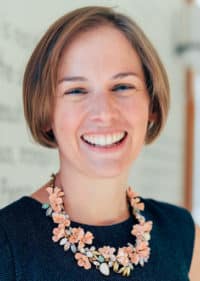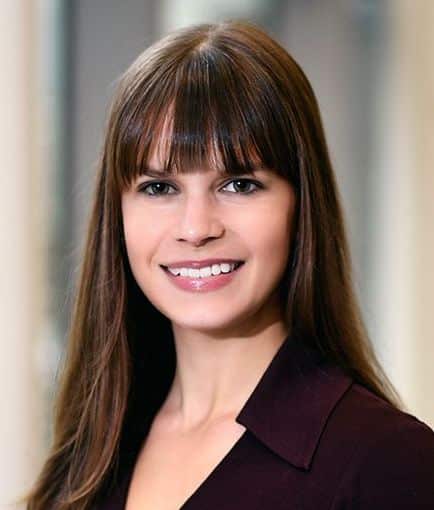Penn Memory Scholar, Dr. Emily Largent, PhD, JD, RN, and Dr. Stephanie Morain PhD, MPH, of Baylor College of Medicine received the inaugural David Roscoe Award for an Early-Career Scholar’s Essay on Science, Ethics, and Society from the Hastings Center.
“Stephanie is a great friend and a great collaborator. We first met in grad school. Sharing this award with her feels particularly special given our history,” said Dr. Largent.
The award recognizes an essay on the social and ethical implications of advances in science and technology written that is accessible to a general audience. Their essay was chosen by a committee of Hastings Center Fellows from among 36 entries whose authors came from nine countries.
Their paper, “Recruitment and Trial-Finding Apps – Time for Rules of the Road,” which was published in the Journal of the National Cancer Institute in May, examines ethical issues that arise from a recent spur of trial recruitment apps such as PatientWing.
“While being excited about the promise these apps hold, we have to be mindful of potential ethical pitfalls,” she said.
In Dr. Largent and Dr. Morain’s research, they note trial finding apps have the potential to circumvent the traditionally clunky and slow methods of recruitment. However, user data sharing between app developers, misrepresentation in marketing materials, the cost of certain apps create an ethical minefield out of what is billed as a streamlined recruitment process.
In that streamlining, conflicts of interest arise. Novartis’ app, Clinical Trial Seek, has “Novartis trials,” as the default search option and users must actively select to view “All trials” as an alternative. The trials that prospective participants see may not really be the “best” match for them but the one that benefits trial sponsors or the app developer the most.
All the while, this burgeoning industry is moving at a pace too fast for regulators and human subjects protections bodies like the International Review Board (IRB) to reasonably accommodate.
“They disrupt traditional approaches to recruitment—where an investigator advertises a study to prospective participants—by introducing a third party into the mix. Our ethical and regulatory frameworks weren’t designed to accommodate that,” Dr. Largent said.
Dr. Largent and Dr. Morain suggest that awareness from app developers, research institutions, clinicians, regulators, and prospective research participants can stem the wave of issues that crop up on third-party apps.
The pair will be honored at the American Society for Bioethics and Humanities Conference in Pittsburgh, PA, on October 24-27, 2019.
The Journal of the National Cancer Institute has made the paper available for free for the next six months to celebrate the award. Read the full text here.

